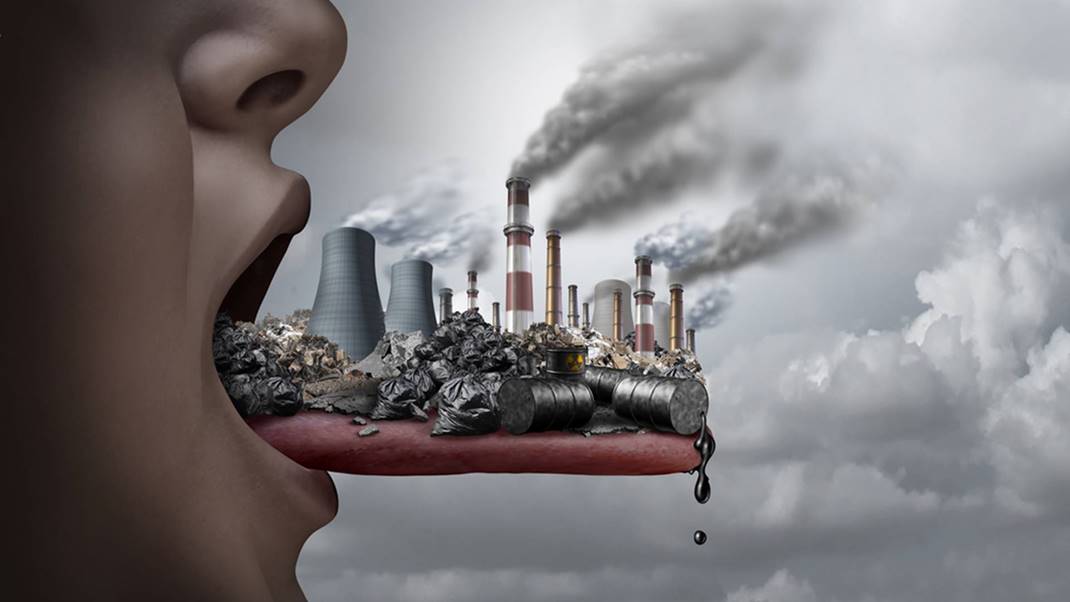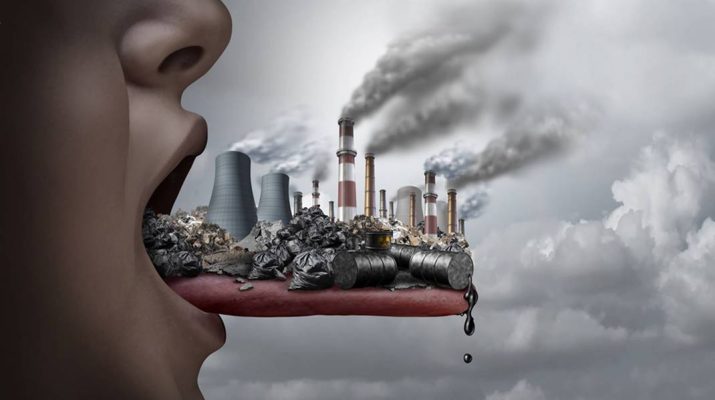The associate fellow at Chatham House: Paris Agreement turns 7 years old today, but is it already on life support?

Message from scientists, 80 nations calling for phase-out, UN chief is unambiguous – phasing out coal, oil, gas is make or break for 1.5C
Nov. 4 marks seven years since the Paris Climate Accord came into force after it was adopted in the French capital in December 2015.
The landmark climate treaty represented a watershed moment in climate change governance and became the moment when all nations committed to doing something about climate change. However, it had a hidden flaw.
The agreement aimed to limit global warming to well below 2 degrees Celsius, preferably 1.5C, compared to pre-industrial levels, build resilience to climate effects, and align financial support with the scale and scope needed to tackle the climate crisis.
However, national commitments under the agreement are entirely voluntary, as countries are required to submit pledges called Nationally Determined Contributions (NDCs) on how they will reduce emissions and adapt to climate impacts. Those NDCs never added up to the needed emission reductions.
To address this, regular reviews – known as the Global Stocktakes – were mandated by the agreement to check if the world is on track to meet the goals of the accord and to advise nations on whether they need to revisit their pledges.
First health check
Just a few weeks ago, the first Global Stocktake report was publicly released. To no one’s surprise, it offered a sobering assessment.
It found that while the Paris Agreement has spurred near-universal climate action, much more is needed now on all fronts as emissions are not falling nearly fast enough.
The NDCs submitted so far would still lead to around 2.5C of warming this century. Implementation of current pledges is also lagging.
Meanwhile, climate impacts are accelerating, and adaptation support remains fragmented, uneven, and insufficient to deal with rising climate impacts and risks.
The report called for steeper emissions cuts this decade across all sectors, capacity building, international cooperation, a rapid phase-out of fossil fuels starting with coal, boosting adaptation, scaling up climate finance, and aligning all financial flows with the Paris Agreement goals.
Scientists say the window is closing fast and that our carbon budget for a 1.5C warmer world will run out before the end of the decade if emissions continue as they are today.
However, limiting warming to 1.5C is still feasible if the monumental effort required is put in. This includes peaking emissions by 2025, reducing emissions by 43% by 2030, and reaching net-zero emissions by mid-century, all necessitating an all-hands-on-deck effort.
Countries have agreed to update their NDCs in 2025. This offers an opportunity to get on track.
But this opportunity can only happen if we are all rowing in the same direction. Emissions in most nations are still rising rather than falling, stronger national policies and more finance for developing countries are not materializing at the scale or speed needed, vested interests are slowing the clean energy transition, and rhetoric is not always matched with real action.
The Global Stocktake highlights that while the Paris Agreement has strengthened climate consciousness, the grave prognosis demands emergency intervention before it is too late.
Paris may not be dead yet, but its pulse is dangerously faint. Radical strengthening of commitments cannot come soon enough.
Leaving fossils in the ground
The Global Stocktake recommendation of phasing out fossil fuels is perhaps its least straightforward to galvanize action behind.
The report notes in no uncertain terms that there can be no new fossil fuel infrastructure in a world committed to keeping warming in check, including phasing out the existing coal industry in a just manner by 2040 and phasing out inefficient fossil fuel subsidies by 2025.
Later this month, delegates from around the world will gather in Dubai for the UN climate change conference COP28 to negotiate a number of pending issues. Among those issues are interrelated ones, such as the way forward in light of the Paris Agreement’s poor report card, and the contentious issue of the phase-out of fossil fuel.
The message from scientists, the 80 nations calling for a phase-out, and the UN Secretary-General Antonio Guterres is unambiguous – phasing out coal, oil, and gas is make or break for 1.5C.
Failure to do so will mean irreversible harm to lives and livelihoods. Yet oil and gas producers are pushing back.
This sets the scene for a showdown in Dubai. Entrenched positions and no compromise in sight mean a challenging COP awaits.
With just seven years remaining to nearly halve emissions, the stakes could not be higher. The lack of a negotiation track on phasing out fossil fuels complicates the progress. Unless a landing zone is found, another year could be lost with no new commitments or actions.
The upcoming COP28 summit has been one of the most important climate milestones since the Paris Agreement. It is also the moment to bring it back from the brink as its pulse fades away.
With the prognosis so dire, radical action cannot come soon enough to revive the ailing climate treaty and steer the world away from climate catastrophe.
(AA)
Napomena o autorskim pravima: Dozvoljeno preuzimanje sadržaja isključivo uz navođenje linka prema stranici našeg portala sa koje je sadržaj preuzet. Stavovi izraženi u ovom tekstu autorovi su i ne odražavaju nužno uredničku politiku The Balkantimes Press.
Copyright Notice: It is allowed to download the content only by providing a link to the page of our portal from which the content was downloaded. The views expressed in this text are those of the authors and do not necessarily reflect the editorial policies of The Balkantimes Press.

